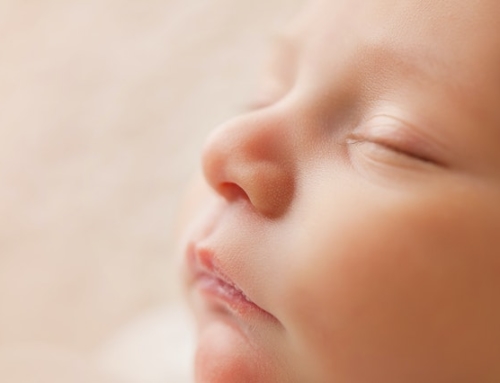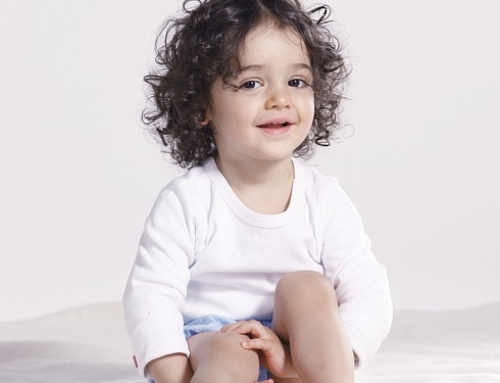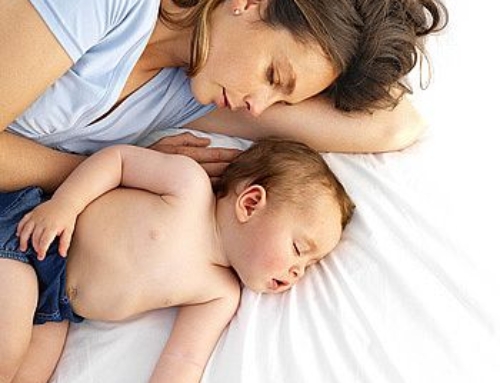By Tracy G. Cassels
To read this article in Spanish, click here.
There’s a new piece in the Huffington Post (and many other news sources) about some research out of UC Berkeley presented at a recent conference (SPSP, the largest social psychology conference there is) which found that poor sleep affects our feelings of gratitude to our partners. In fact, it may make us selfish, prioritizing our own needs over those of others, according to the researchers. I imagine many people will jump on this as yet more proof that we must ensure we as parents get enough sleep, even if that means sleep training our kids. Personally, I don’t think that’s where we should be going though.
Let me start by saying that I have written a lot about sleep, and will probably write much more about sleep as the years go by. But one thing that seems to come up time and again is the importance of sleep. People jump on the importance of sleep as an excuse to do just about anything when it comes to kids. After all, sleep deprivation can be a factor in post-partum depression, can impair our mental functioning, and now it can ruin relationships. So why do some of us out there argue that sleep training is bad? That you can survive some sleep deprivation at night? Because that is the biological norm that we should be using as the baseline for looking at sleep in new parents.
Take this new research as an example. Sleep deprivation makes us more selfish? Evolutionarily (or biologically) speaking, this makes little sense. Perhaps with severe sleep deprivation (but that’s not what was assessed), but if run of the mill sleep deprivation in new parents led to them being more selfish and less likely to care for the needs of others, we’d have died out. Part of parenting is adapting to different sleep (and if you breastfeed, co-sleep, and are able to get naps in the day, you can function quite well, why we need to fight for longer maternity leaves or flexible working conditions for new parents). This means our sleeping needs are qualitatively different than those of an adult without children or even parents with children at different stages. The sleep needs of a parent with a 3 month old will differ than those of a parent with a 3 year old, or a parent with three children. And if we continue to compare parents with non-parents, we’re bound to get caught up in this cycle of forcing children into situations for which they are not biologically adapted.
When we take studies that are based on non-parents and attempt to generalize them to parents we end up ignoring very important information. First, we may ignore the feeding needs of young infants. Babies need to feed frequently 24-hours a day (as do formula-fed infants, though generally to a lesser degree). Their tummies are small What do we take from this research then? One of the principals of research is to understand how generalizable your research is. This is something we have sorely forgotten when it comes to talking about research on sleep and parenting. Studies looking at the effects of sleep deprivation are generally based on university students or community samples without consideration of parenting status. In order to truly understand the effects of sleep quality for parents, we need to do research on sleep quality with parents. This needs to be the baseline for which our comparisons are made. We need to determine what is the “normal” amount of sleep a new parent can expect and then look at the effects of functioning, bonding, and responsiveness based on increases or decreases from this amount. Because while the quality and quantity of our sleep will be affected by the presence of a newborn, it is not necessarily a bad thing. Although some parents will know when they’ve suffered as a result of sleep deprivation (and should seek help immediately), generally, we just don’t know enough about what is “normal” for parent sleep to make any kinds of generalizations or recommendations for child or infant sleep. So before you jump to conclusions on any new piece of research, think about whether it makes sense given your role as parent, and you may find that this research just isn’t about you. [Image credit: Bebo Mia]
[2] Ball HL. Breastfeeding, bed-sharing, and infant sleep. Birth 2003;30:181-188. [3] Watanabe N, Yotsukura M, Kadoi N, Yashiro K, Sakanoue M, & Nishida H. Epidemiology of sudden infant death syndrome in Japan. Acta Paediatrica Japonica 1994; 36: 329-332. [4] Feldman R. From biological rhythms to social rhythms: physiological precursors of mother-infant synchrony. Developmental Psychology 2006; 42: 175-188. [5] Feldman R. Parent-infant synchrony and the construction of shared timing: physiological precursors, developmental outcomes, and risk conditions. Journal of Child Psychology and Psychiatry 2007; 49: 329-354. [6] Gerhardt S. Why love matters: how affection shapes a baby’s brain. Hove, East Sussex: Brunner-Routledge; 2004. [7] Middlemiss W, Granger DA, Goldberg WA, Nathans L. Asynchrony of mother-infant hypothalamic-pituitary-adrenal axis activity following extinction of infant crying responses induced during the transition to sleep. Early Human Development 2011; 88: 227-232.






I don’t understand yourtheory that mothers have different sleep requirements to anyone else? I dont think i function quite well when i dont sleep enough, I feel irritable and I am definitely more snappy and irrational regardless of whether I’ve got a young baby or not. You say that babies need to feed frequently during the night and therefore we should expect them to awake frequently but this is only the case for the first 6 months, research shows that after this babies can take in enough calories during the day to allow them to sleep throughout the night. I know this article is related to the effects of poor quality sleep in parents but a child who doesn’t sleep well (usually because the carer doesn’t know how to assist the child to develop good sleep habits) often has the same issues including being irritable, clumsy and more unhappy. I have three children and if for any reason they stay up slightly later or have interrupted sleep they cry, whine and are generally more unhappy the next day.
Actually Caroline, some babies require it past 6 months – every baby is just so different. Some babies seem to need (and continue) night wakings into the 3rd year of life. But mothers’ sleep does differ from non-parents and yet it seems to have a purpose (see the synchrony argument). Some might be more affected than others (why I said at the end to focus on whether you think this fits for you when you read research), but by and large we don’t know what the sleep requirements are for good parenting as we’re basing all on our information on sleep on non-parents. (And of course if someone has to get to work at 3 or 6 weeks, we’ve got a bigger problem because the demands on that parent do require more sleep than a parent staying at home.)
Reading your pieces always makes my shoulders relax. When it comes to our babies (and many things) we parents have been fed information that feels both inaccurate and unauthentic. Reading solid information that confirms what our intuition tells us is a gift.
it seems so important to me that we are accurate in our expectations of new parents. Otherwise, parents feel like they are failing, and babies are not having their most basic needs met.
As always, thank you for this piece.
Thank you Jen 🙂 I think people just forget that we need to start from what is biologically normal and find out what happens there. THEN branch outward. It shouldn’t be hard, but it is!!!
I know this is an older post, but I wanted to comment anyways – I agree with you to a certain extent. We shouldn’t be expecting young infants to sleep through the night at 3 months, we shouldn’t be expecting to get the same sleep we used to pre-baby. Of course no parent should ever let a child’s cries of distress go unanswered.
We coslept for the first 6 months, but my daughter is a light sleeper, and as a result we all ended up being up most of the night as she woke every time my husband or I moved in bed. So we moved her into a portable crib in our room. Then for about 3 months, I continued to nurse her every 1-2 hours through the night. Cosleeping and nursing all night wasn’t much better – I didn’t drift in and out of sleep and would be up for an hour after every feeding until the next one started.
By my daughter’s 9-month birthday, I was a wreck. I was clinically depressed and almost totally unable to function because of a lack of sleep. We’d been faithfully trying the tactics suggested in the No-Cry Sleep Solution since she was 4 months old. My husband and I were fighting pretty much constantly and I started to feel resentful towards my daughter. I wasn’t as responsive or as attentive to her during the daytime hours because I was plain worn out.
So we decided to sleep train.
I still nursed and cuddled her to sleep, but we decided to let her cry during her night wakings. My daughter whimpered for about 15 minutes three times the first night. Yes, it was hard not to rush to her, but at the same time it wasn’t distressed crying. The next night she didn’t wake at all, and hasn’t since. She didn’t NEED to eat all night – it was a habit she’d become accustomed to (since the time when she actually did need it!)
Sleep training for us was necessary and a positive experience. There are certainly no signs that it impacted our relationship, her trust in us, or anything for the negative. In fact, she was much happier after a good night’s sleep. I guess I just find it incredibly frustrating when sleep training is demonized to the extent that it has been. I would never have sleep trained a 3-month-old, but on the other hand, a friend with twins sleep trained them at 4 months after 4 consecutive months of no sleep at all and I feel like I’m in no position to judge.
I don’t think it’s right to expect the mother of an older baby to go without sleep. Sleep deprivation does, in fact, have a well-documented effect on health and wellbeing (it will kill you faster than starvation!) We need to practice self care not only because we can care for our children better when we’re cared for ourselves, but because we need to model it for our kids.
I agree it’s not right to expect parents to be extremely sleep deprived. I think, however, the issue has to start with society in that we need more support for parents and families in general. Then we need to be promoting gentle sleep methods – and not just one (you aren’t the first I know of where the NCSS didn’t work, but there ARE other gentle methods too). We also need to talk to parents about the myriad reasons sleep is affected because sadly sleep is often a symptom not a cause.
My issue is when we ignore all these in favour of quick fixes that *can* have negative consequences for the family.
One more thing: I don’t judge *families* that have used sleep training. I actually understand why many go that route. I do, however, take issue with those that promote the methods without discussion of feeding and health problems that can cause sleep disruption, without discussion of gentler methods that can work for families, or even an understanding of what normal sleep looks like in infancy because we have a very skewed view of it.